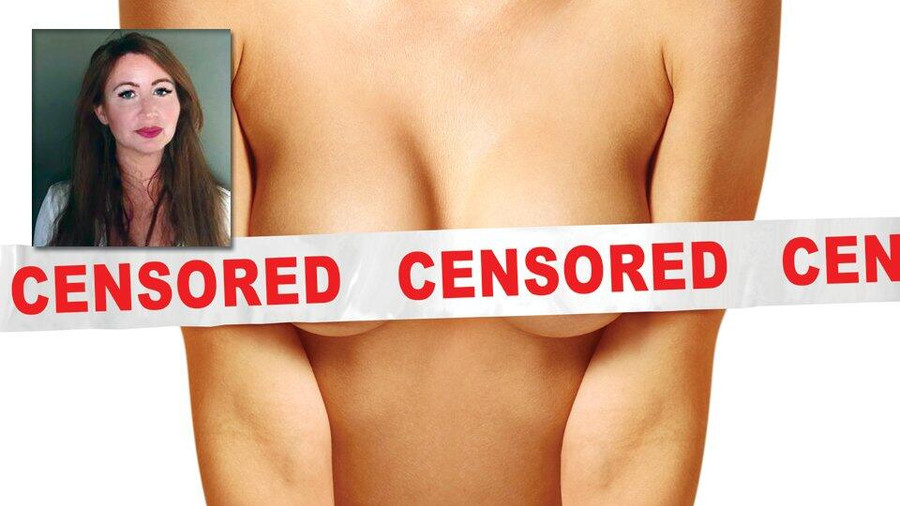There are quite a lot of penises in my Twitter timeline. And breasts, and vulvas, and plenty of animated gifs of people having a sexy time together. There are also, if you look in certain places, videos of people punching and kicking each other, pushing others under buses, beating those who can’t fight back, and partaking in various other violent acts. Why did I put these things in the same paragraph? What has consensual sexual activity got to do with non-consensual acts of violence? According to Twitter, everything.
This week, I was alerted by XBIZ to the updated Twitter terms of service — specifically those on “sensitive content,” which are causing justified concern for adult performers and businesses.
Sex stigma is far from the only issue that Twitter has when it comes to content.
The terms have a few fairly sensible rules, such as “mark your media as sensitive if you frequently post nudes,” but these are mixed in with a lot of other rules that are downright prudish and harmful.
Broadly, the concern from sex workers, adult performers, sex educators and people like me who work for sex toy companies, is that the new rules effectively lay the groundwork for being able to ban any “adult” content from Twitter’s platform.
Like many other large tech companies, Twitter began by welcoming us and allowing us to use their space for free expression. This is how it always begins. Those of us who are banned from other places find new outlets for sexual freedom, and we use those platforms to promote our work — whether it’s sharing porn videos, tackling stigmas surrounding sex and masturbation, finding customers for sexual goods and services, or all of the above. But once the platform grows beyond a certain size, suddenly concerns about “brand” start to seep in: “There’s porn on Twitter!” people shout, “won’t someone think of the children?” And before long, the platform starts to crack down on those whose content might be seen as “inappropriate” for younger users.
I think it’s sensible to have policies around “sensitive material” — I know many are frustrated by shadow-banning (as am I), and how difficult it can be to gain a new audience if so much of our content is hidden behind a modesty screen, but I genuinely do believe that this is a useful way to prevent people from stumbling upon adult content without having consented to see it. But there’s a huge difference between offering tools for people to use to ensure that porn is consumed consensually, and taking steps to wipe it entirely from your platform.
Because make no mistake, this is what Twitter is going to be able to do. From the guidelines:
“Accounts dedicated to posting sensitive media ... your account may be permanently suspended if the majority of your activity on Twitter is sharing sensitive media.”
This means sex workers and porn performers whose primary reason for being on Twitter is to promote their work. If I were you, I’d start posting lots of tangential content quickly: make sure that for every scene tweet you post, you also post a few news stories. Silly jokes. Animated gifs of kittens playing with string or otters eating watermelon. Anything but porn. It doesn’t matter to Twitter that the people following you have consented to view your work — it’s sexy, therefore it might get you banned.
The reason I wanted to highlight the absurdity of Twitter lumping sex and violence together is because we in the sex industry are used to understanding our work in the context of consent. Consent is key. So when we see consensual sex and non-consensual violence thrown into the same bucket, quite rightly we get angry. While we can probably all agree that these definitely count as “adult content” — I wouldn’t want my young children consuming either of these videos early in their lives, without appropriate context and education — it’s clear that sex and violence sit in very different places on the “adult content” spectrum.
Sex stigma is far from the only issue that Twitter has when it comes to content. No matter how swiftly one hits the “block” button, you can’t really exist in the sex space without encountering misogyny, harassment, transphobia, homophobia and more. When I originally tweeted about taking up the role of COO of Hot Octopuss full-time (I’m @jules_margo by the way — say hello as long as you’re nice!), I was almost immediately “welcomed” with messages from a user who thought he had carte blanche to make salacious comments about my appearance.
And that’s not all, by a long shot. While Facebook bore the brunt of the recent election interference scandal, we know that Twitter has also been a target of Russian influence campaigns and disinformation. And you don’t need to scroll too far down the replies to tweets from the U.S. President to find a slew of anti-Semitism or other bigotry.
Twitter has a content problem. Of course it does. It’s a huge social media platform that spans the globe, encompassing the very best of humanity and also the very worst. So moderating content is vital to ensure a safe environment for users, where they can express themselves without fear. But if you’re going to moderate people’s expression, your policies need to be based on ethical foundations, which recognize the diversity of human experience and are grounded in consent. Lumping sex and violence together shows a wild misunderstanding of the importance of consent in our everyday lives. And banning sex altogether erases a vast and significant aspect of the human experience. So where do we go from here? Perhaps I’ll see you on a different platform… before we get banned from that one too.
Julia Margo is the co-founder of Hot Octopuss.








